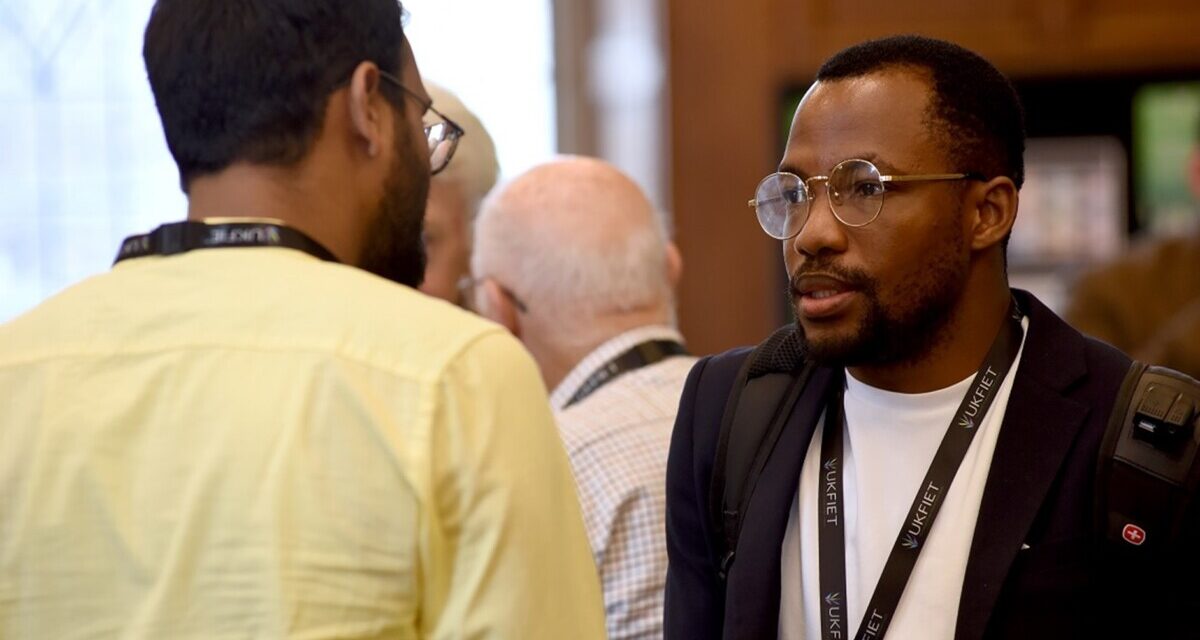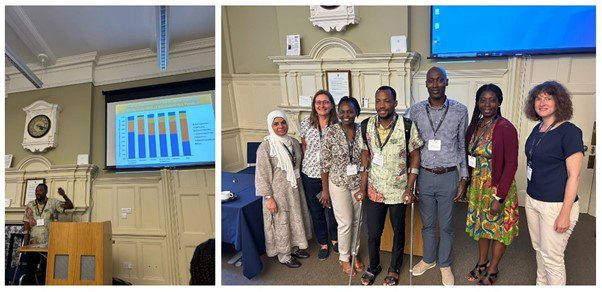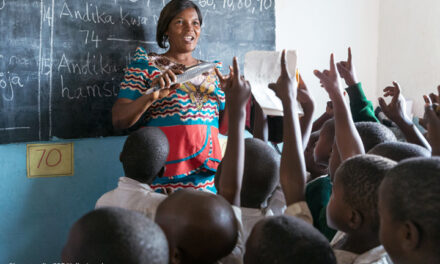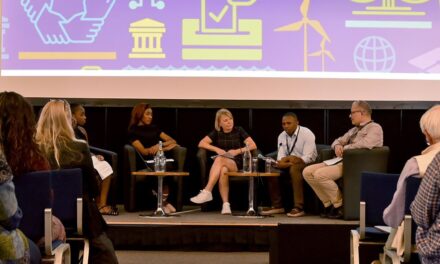This blog was written by Daniel Hawkins Iddrisu, Research Assistant, Research for Equitable Access and Learning (REAL) Centre at the University of Cambridge. For the 2023 UKFIET conference, 32 individuals, including Daniel, were provided with bursaries to assist them to participate and present at the conference. The researchers were asked to write a short piece about their research or experience.
From a first-generation student to an early-career researcher, I took the podium at my inaugural international conference at the UKFIET conference in September 2023. This journey, marred by fear, doubt, and failures, also flourished with enthusiastic learning – a narrative I would imagine is a precursor to many a triumphant academic and professional story. However, looking back on my time at rural primary school through to my undergraduate studies in Ghana, I feel my story represents a significant colossal journey. After commencing my initial research position at the REAL Centre, University of Cambridge, in October 2022, I felt akin to a wanderer in uncharted lands. Cambridge, with its rigorous academic ethos and pronounced elitism, was intimidating. But amidst this daunting environment, I could not resist the joy outpouring in my heart, a stark contrast to the surrounding challenges.
In this blog, I share insights from the 2023 UKFIET conference, recounting how this seminal experience has conferred lifelong benefits and, I hope, offers valuable lessons to budding researchers. Not only does my reflection target early-career researchers, but it is also a resounding appeal to conference organisers to prioritise the inclusion of emerging voices in academia.
Diving into the heart of the conference, I start by exploring the theme of social capitalisation and participation in social events. Unquestionably, the pinnacle of any conference is the opportunity to meet colleagues and scholars we have long admired. However, the reality of these encounters can be daunting, particularly for early-career researchers like myself, where shyness and reserve often take precedence. Despite these challenges, I embraced the unique opportunity that UKFIET offered to engage with both seasoned and emerging researchers I never imagined meeting or talking to. I connected and exchanged insights with notable figures in international education, crystallised by when I spoke and exchanged emails with ones I follow on Twitter and LinkedIn, having also cited their work in my academic writings as the norm requires. This experience affirms that these revered academics are approachable and willing to listen. For budding researchers, such networking is indispensable, solidifying conferences as a prime avenue for social capital mobilisation.
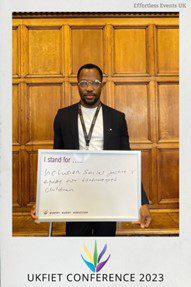 Contrary to prevailing assumptions, forums like UKFIET are not exclusively arenas for continuous, rigorous debate – a misconception I admittedly held until this experience. These gatherings also foster enjoyment and casual interactions. I witnessed academics, even those of professorial ranks, lose themselves in the rhythms of disco music, a scene I initially perceived as a mere respite for weary minds. Yet, my observations revealed a consistent thread of learning and networking embedded in every moment, dispelling my prior notions. A serendipitous encounter during a musical interlude with a fellow delegate led to them introducing me to ‘Rayyan’, a tool for literature reviews. For me, this underscored the pivotal role of informal social events in academic processes – a realm not solely reserved for non-academics.
Contrary to prevailing assumptions, forums like UKFIET are not exclusively arenas for continuous, rigorous debate – a misconception I admittedly held until this experience. These gatherings also foster enjoyment and casual interactions. I witnessed academics, even those of professorial ranks, lose themselves in the rhythms of disco music, a scene I initially perceived as a mere respite for weary minds. Yet, my observations revealed a consistent thread of learning and networking embedded in every moment, dispelling my prior notions. A serendipitous encounter during a musical interlude with a fellow delegate led to them introducing me to ‘Rayyan’, a tool for literature reviews. For me, this underscored the pivotal role of informal social events in academic processes – a realm not solely reserved for non-academics.
This experience segued into another form of learning, one that was more direct but equally enlightening – learning openly through feedback. How do we prepare to grow as young researchers? Well, in the pursuit of this growth, I set aside pride and apprehension to seek feedback from attendees in my session post-presentation. I spoke to a few attendees to ascertain their views on my content and approach. Constructively, I was fed with honest pointers on where to keep up and where to improve. One reflection that particularly shaped my perspective was with a renowned researcher in international education. Our conversation about my presentation, relating to mapping early childhood development and African education research, and its role in decolonising knowledge production, opened my eyes to new viewpoints and inspired me to explore this area further in my future work. The feedback I received was invaluable. One attendee suggested a more interactive approach to engage the audience, which I reflected on deeply as I will implement some techniques to achieve this at my next conference presentation opportunity; I cherish this feedback as someone who deeply values audience engagement. Overall, my reflections on their open responses forged new knowledge, confidence, and self-belief. I believe this serves as a direct radical medium to examine one’s performance while striving to grow openly.
Such transformative learning was not just an end but a springboard for further growth and development. To put it mildly, I feel UKFIET was a crucible that refined my knowledge, communication skills, and presentation approach. The ripples of this experience and the constructive feedback were intensely felt; a mere four days later, I found myself participating in the 3rd International Conference on Education Research for Development in Africa (ICERDA) in Ghana. Here, I distinctly felt a sharpening in my interaction with delegates and a bolstering of confidence in my presentation delivery. The experience at UKFIET signified exponential progress for me, spanning both personal and professional areas of growth.
In conclusion, I express my deep appreciation to the UKFIET Trustees and organisers for assembling the conference and providing me with a grant for participation. The immeasurable impact of the conference on me as an early-career researcher, especially as a first-generation student, speaks volumes to the immense bearing UKFIET has had on other young delegates. While my experiences primarily speak to early-career researchers, I believe professionals across fields can relate to the themes of growth, overcoming fear, and the importance of networking and continuous learning.

